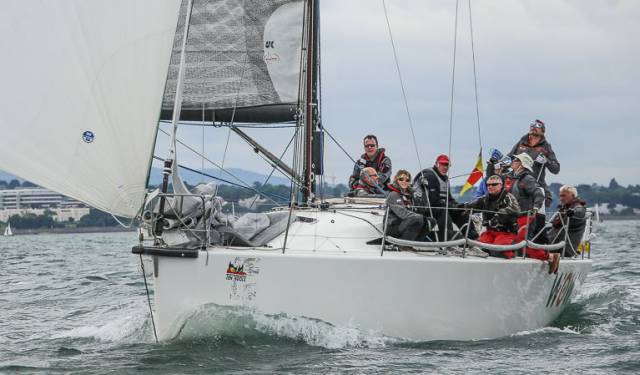Royal Irish skipper George Sisk will be at the helm of a new DBSC Cruisers Zero yacht in the not too distant future. The replacement for his current Farr 42 has yet to be determined, but the crew are seeking an 'all–round club-racer' design that is also capable of winning offshore. Confirmation of the new 40–footer comes as the Royal Irish skipper's current boat WOW goes on the market this week.
News of the new boat rules out any question of Sisk's departure from DBSC Class Zero. 'Quite the opposite', according to WOW's, Tom Power, who says the decision on the design of the new boat may still be 'on the stocks' but it will definitely be a 'Zero' size.
In the meantime, the Royal Irish YC crew intend sailing a full season aboard WOW, the 2015 ICRA Boat of the Year. 'We're entered for the Dun Laoghaire to Dingle Race in June and the Volvo Dun Laoghaire Regatta in July and we will be campaigning the boat full–on all season in DBSC', said Power, who was skipper of the 1987 Fastnet Race winner, Irish Independent.
It is conceivable that the Farr 42 may stay in the Bay, under a new owner, he says.
And there's a further boost for Cruisers Zero sailors too with the news emerging today that the 40–foot fleet may reach six boats this season with another new boat – yet to be announced – coming into the Bay. It puts paid to any notion of a merger between DBSC's Cruisers One and Zero as previously raised on Afloat.ie






























































